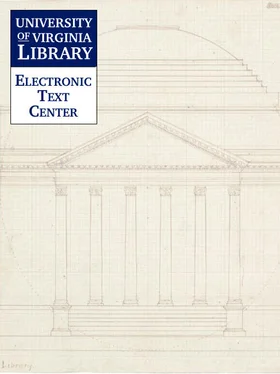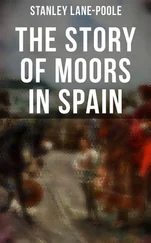Hendrik Loon - The Story of Mankind
Здесь есть возможность читать онлайн «Hendrik Loon - The Story of Mankind» весь текст электронной книги совершенно бесплатно (целиком полную версию без сокращений). В некоторых случаях можно слушать аудио, скачать через торрент в формате fb2 и присутствует краткое содержание. Год выпуска: 2000, Издательство: Electronic Text Center. University of Virginia Library., Жанр: Старинная литература, на английском языке. Описание произведения, (предисловие) а так же отзывы посетителей доступны на портале библиотеки ЛибКат.
- Название:The Story of Mankind
- Автор:
- Издательство:Electronic Text Center. University of Virginia Library.
- Жанр:
- Год:2000
- ISBN:нет данных
- Рейтинг книги:3 / 5. Голосов: 1
-
Избранное:Добавить в избранное
- Отзывы:
-
Ваша оценка:
- 60
- 1
- 2
- 3
- 4
- 5
The Story of Mankind: краткое содержание, описание и аннотация
Предлагаем к чтению аннотацию, описание, краткое содержание или предисловие (зависит от того, что написал сам автор книги «The Story of Mankind»). Если вы не нашли необходимую информацию о книге — напишите в комментариях, мы постараемся отыскать её.
The Story of Mankind — читать онлайн бесплатно полную книгу (весь текст) целиком
Ниже представлен текст книги, разбитый по страницам. Система сохранения места последней прочитанной страницы, позволяет с удобством читать онлайн бесплатно книгу «The Story of Mankind», без необходимости каждый раз заново искать на чём Вы остановились. Поставьте закладку, и сможете в любой момент перейти на страницу, на которой закончили чтение.
Интервал:
Закладка:
You will gradually begin to understand what I am driving at. The engineer and the scientist and the chemist, within a single generation, filled Europe and America and Asia with their vast machines, with their telegraphs, their flying machines, their coal-tar products. They created a new world in which time and space were reduced to complete insignificance. They invented new products and they made these so cheap that almost every one could buy them. I have told you all this before but it certainly will bear repeating.
To keep the ever increasing number of factories going, the owners, who had also become the rulers of the land, needed raw materials and coal. Especially coal. Meanwhile the mass of the people were still thinking in terms of the sixteenth and seventeenth centuries and clinging to the old notions of the state as a dynastic or political organisation. This clumsy mediæval institution was then suddenly called upon to handle the highly modern problems of a mechanical and industrial world. It did its best, according to the rules of the game which had been laid down centuries before. The different states created enormous armies and gigantic navies which were used for the purpose of acquiring new possessions in distant lands. Whereever there was a tiny bit of land left, there arose an English or a French or a German or a Russian colony. If the natives objected, they were killed. In most cases they did not object, and were allowed to live peacefully, provided they did not interfere with the diamond mines or the coal mines or the oil mines or the gold mines or the rubber plantations, and they derived many benefits from the foreign occupation.
Sometimes it happened that two states in search of raw materials wanted the same piece of land at the same time. Then there was a war. This occurred fifteen years ago when Russia and Japan fought for the possession of certain territories which belonged to the Chinese people. Such conflicts, however, were the exception. No one really desired to fight. Indeed, the idea of fighting with armies and battleships and submarines began to seem absurd to the men of the early 20th century. They associated the idea of violence with the long- ago age of unlimited monarchies and intriguing dynasties. Every day they read in their papers of still further inventions, of groups of English and American and German scientists who were working together in perfect friendship for the purpose of an advance in medicine or in astronomy. They lived in a busy world of trade and of commerce and factories. But only a few noticed that the development of the state, (of the gigantic community of people who recognise certain common ideals,) was lagging several hundred years behind. They tried to warn the others. But the others were occupied with their own affairs.
I have used so many similes that I must apologise for bringing in one more. The Ship of State (that old and trusted expression which is ever new and always picturesque,) of the Egyptians and the Greeks and the Romans and the Venetians and the merchant adventurers of the seventeenth century had been a sturdy craft, constructed of well-seasoned wood, and commanded by officers who knew both their crew and their vessel and who understood the limitations of the art of navigating which had been handed down to them by their ancestors.
Then came the new age of iron and steel and machinery. First one part, then another of the old ship of state was changed. Her dimensions were increased. The sails were discarded for steam. Better living quarters were established, but more people were forced to go down into the stoke-hole, and while the work was safe and fairly remunerative, they did not like it as well as their old and more dangerous job in the rigging. Finally, and almost imperceptibly, the old wooden square-rigger had been transformed into a modern ocean liner. But the captain and the mates remained the same. They were appointed or elected in the same way as a hundred years before. They were taught the same system of navigation which had served the mariners of the fifteenth century. In their cabins hung the same charts and signal flags which had done service in the days of Louis XIV and Frederick the Great. In short, they were (through no fault of their own) completely incompetent.
The sea of international politics is not very broad. When those Imperial and Colonial liners began to try and outrun each other, accidents were bound to happen. They did happen. You can still see the wreckage if you venture to pass through that part of the ocean.
And the moral of the story is a simple one. The world is in dreadful need of men who will assume the new leadership-- who will have the courage of their own visions and who will recognise clearly that we are only at the beginning of the voyage, and have to learn an entirely new system of seamanship.
They will have to serve for years as mere apprentices. They will have to fight their way to the top against every possible form of opposition. When they reach the bridge, mutiny of an envious crew may cause their death. But some day, a man will arise who will bring the vessel safely to port, and he shall be the hero of the ages.
AS IT EVER SHALL BE
``The more I think of the problems of our lives, the more I am ``persuaded that we ought to choose Irony and Pity for our ``assessors and judges as the ancient Egyptians called upon ``the Goddess Isis and the Goddess Nephtys on behalf of their ``dead. ``Irony and Pity are both of good counsel; the first with her ``smiles makes life agreeable; the other sanctifies it with her ``tears. ``The Irony which I invoke is no cruel Deity. She mocks ``neither love nor beauty. She is gentle and kindly disposed. ``Her mirth disarms and it is she who teaches us to laugh at ``rogues and fools, whom but for her we might be so weak as ``to despise and hate.''
And with these wise words of a very great Frenchman I bid you farewell. 8 Barrow Street, New York.
Saturday, June 26, xxi.
AN ANIMATED CHRONOLOGY,
500,000 B.C.--A.D. 1922
CONCERNING THE PICTURES
CONCERNING THE PICTURES OF THIS BOOK AND A FEW WORDS ABOUT THE BIBLIOGRAPHY.
The day of the historical textbook without illustrations has gone. Pictures and photographs of famous personages and equally famous occurrences cover the pages of Breasted and Robinson and Beard. In this volume the photographs have been omitted to make room for a series of home-made drawings which represent ideas rather than events.
While the author lays no claim to great artistic excellence (being possessed of a decided leaning towards drawing as a child, he was taught to play the violin as a matter of discipline,) he prefers to make his own maps and sketches because he knows exactly what he wants to say and cannot possibly explain this meaning to his more proficient brethren in the field of art. Besides, the pictures were all drawn for children and their ideas of art are very different from those of their parents.
To all teachers the author would give this advice--let your boys and girls draw their history after their own desire just as often as you have a chance. You can show a class a photograph of a Greek temple or a mediæval castle and the class will dutifully say, ``Yes, Ma'am,'' and proceed to forget all about it. But make the Greek temple or the Roman castle the centre of an event, tell the boys to make their own picture of ``the building of a temple,'' or ``the storming of the castle,'' and they will stay after school-hours to finish the job. Most children, before they are taught how to draw from plaster casts, can draw after a fashion, and often they can draw remarkably well. The product of their pencil may look a bit prehistoric. It may even resemble the work of certain native tribes from the upper Congo. But the child is quite frequently prehistoric or upper-Congoish in his or her own tastes, and expresses these primitive instincts with a most astonishing accuracy.
Читать дальшеИнтервал:
Закладка:
Похожие книги на «The Story of Mankind»
Представляем Вашему вниманию похожие книги на «The Story of Mankind» списком для выбора. Мы отобрали схожую по названию и смыслу литературу в надежде предоставить читателям больше вариантов отыскать новые, интересные, ещё непрочитанные произведения.
Обсуждение, отзывы о книге «The Story of Mankind» и просто собственные мнения читателей. Оставьте ваши комментарии, напишите, что Вы думаете о произведении, его смысле или главных героях. Укажите что конкретно понравилось, а что нет, и почему Вы так считаете.












